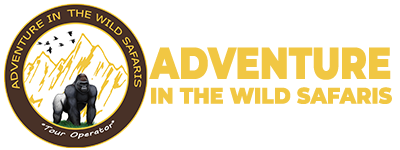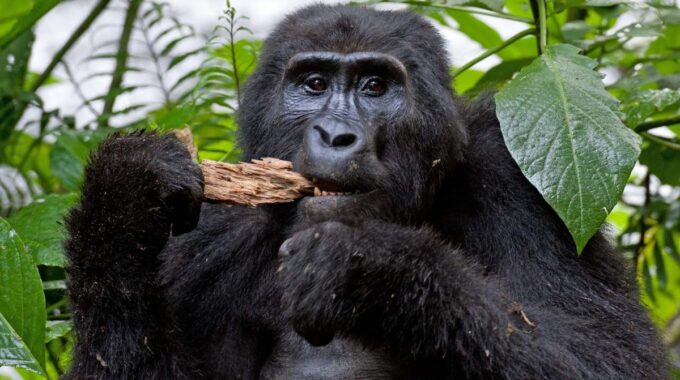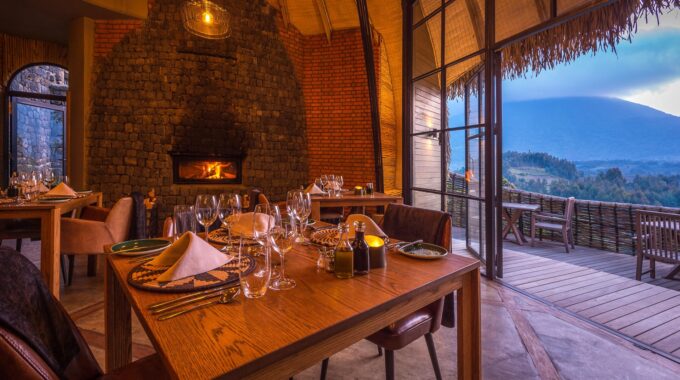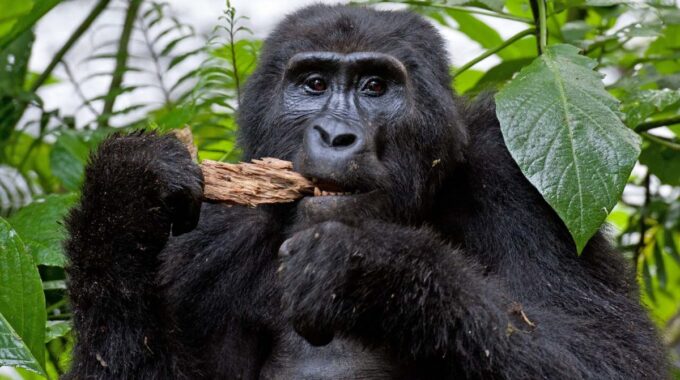Booking Tips for Peak Travel Seasons Booking tips for peak travel seasons: Planning a gorilla…
Comparing Hotel Amenities and Services
Comparing Hotel Amenities and Services: Choosing the Best Stay for Your Gorilla Trekking Adventure.
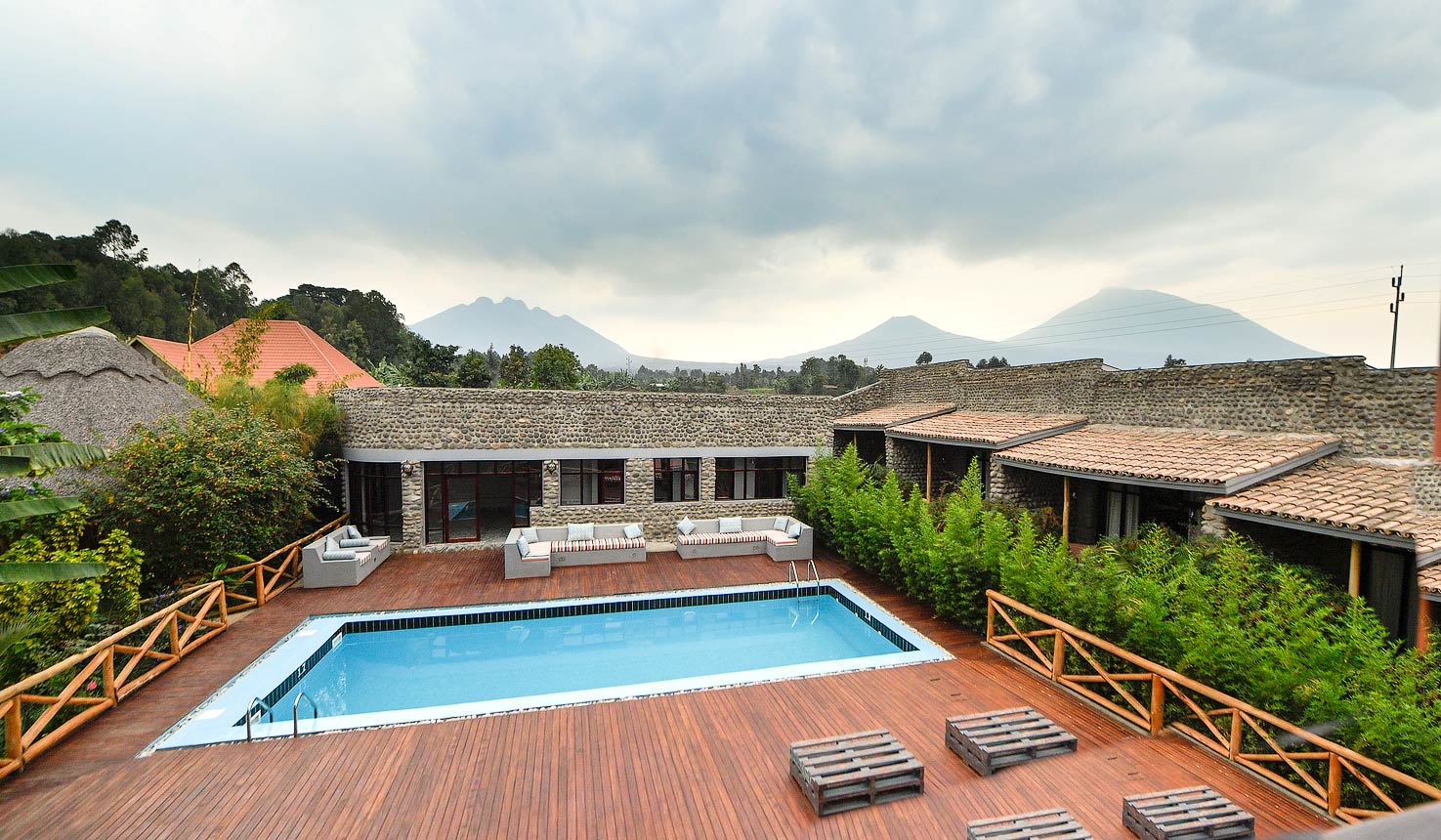
Hotel amenities near Volcanoes: When planning a gorilla trekking safari in Rwanda or Uganda, selecting the right accommodation can make or break your experience. Whether you’re booking a luxury lodge near Volcanoes National Park or a mid-range stay in Bwindi, understanding the differences in hotel amenities and services is key to a comfortable and memorable adventure.
Hotel amenities near Volcanoes in Rwanda and Bwindi and Mgahinga gorilla parks in Uganda. In this guide, we’ll explore and compare the hotel amenities and services you can expect in top gorilla trekking regions: Volcanoes National Park (Rwanda), Bwindi Impenetrable Forest, and Mgahinga Gorilla National Park (Uganda).
Why Hotel Amenities Matter on a Gorilla Trekking Safari
After spending hours hiking through dense forest terrain, spotting rare mountain gorillas, and absorbing the beauty of East Africa, your lodge becomes your haven. The amenities and services offered by your accommodation will significantly impact your ability to relax, recover, and enjoy your surroundings.
Whether you’re seeking luxurious extras like spa treatments and fine dining or simply want reliable hot water and Wi-Fi, it’s essential to know what to expect before you book.
1. Comparing Lodges in Rwanda vs Uganda: A Quick Overview
Rwanda – Volcanoes National Park
- Luxury Options: Rwanda is known for its high-end tourism approach. Luxury lodges like Bisate Lodge, Sabyinyo Silverback Lodge, and One&Only Gorilla’s Nest provide top-tier service and ultra-luxury amenities.
- Typical Amenities: Gourmet cuisine, spa facilities, ensuite bathrooms, butler service, in-room fireplaces, guided walks, and Wi-Fi.
- Service Level: Personalized, attentive, often with a high staff-to-guest ratio.
Uganda – Bwindi and Mgahinga
- Diverse Options: Uganda offers more variety for all budgets. From high-end lodges like Sanctuary Gorilla Forest Camp to comfortable mid-range stays like Mahogany Springs and budget-friendly community-run guesthouses.
- Typical Amenities: Vary depending on price. Common amenities include ensuite bathrooms, solar-heated water, restaurant/bar service, and cultural entertainment.
- Service Level: Friendly and community-driven, with some lodges offering staff from surrounding villages.
2. Key Hotel Amenities to Compare Before Booking
a. Room Features and Comfort
- Luxury Lodges: Expect king-sized beds with premium linens, private decks, minibars, and elegant African-inspired décor.
- Mid-Range Accommodations: Clean, comfortable rooms with mosquito nets, private bathrooms, and scenic views.
- Budget Stays: Simpler setups—often twin beds, shared or private bathrooms, and basic furnishings.
Tip: If you’re trekking multiple days, prioritize comfortable bedding and ensuite bathrooms to aid recovery.
b. Dining Experience and Cuisine
- Rwanda’s high-end lodges offer gourmet meals with international and local influences. Special dietary needs are usually accommodated with prior notice.
- Ugandan lodges range from set-menu to à la carte, with many growing their own organic produce.
Ask in advance about:
- Vegetarian/vegan options
- Packed breakfast or lunch for trekking days
- Use of local ingredients and culinary experiences
c. Spa and Wellness Services
Post-trek spa treatments can be the perfect way to unwind. In Rwanda, spa services are common in top-end lodges. Facilities may include:
- Massages
- Saunas or steam rooms
- Yoga sessions
- Outdoor bathtubs with volcano views
In Uganda, some luxury lodges also offer spa treatments, but mid-range accommodations typically do not.
Keyword Highlight: Spa services near Volcanoes National Park
d. Electricity and Hot Water
Due to the remote nature of the parks, not all lodges have 24-hour electricity.
- Luxury options: Offer 24/7 power via solar or backup generators.
- Mid-range: Often have scheduled hours of electricity.
- Budget lodges: May rely on solar energy and may not always have hot water.
Check for solar-heated showers and charging facilities for electronics, especially if you’re bringing camera gear.
e. Wi-Fi and Connectivity
While many lodges market “digital detox” experiences, Wi-Fi availability varies:
- High-end lodges: Provide reliable Wi-Fi in common areas and sometimes rooms.
- Mid-range: Wi-Fi may be available in reception or dining areas.
- Budget stays: Often have no Wi-Fi or very limited access.
If staying connected is important, choose a lodge with Wi-Fi near Volcanoes National Park or inquire about SIM card compatibility.
f. Guided Walks and Cultural Experiences
Many lodges offer complementary guided activities, such as:
- Nature walks
- Bird watching
- Visits to local villages
- Traditional music and dance performances
🌍 #Related internal link: “#Community-Based Tourism in Uganda’s Gorilla Parks”
g. Porter and Trek Support Services
Some lodges will arrange:
- Porters for your trek
- Walking sticks
- Gaiters or rain gear rentals
- Packed lunches for trek days
Ask in advance if your lodge assists with gorilla trekking logistics.
🎒 #Related blog: “#Why You Should Hire a Porter for Your Gorilla Trek”
3. Safety and Health Amenities
a. First Aid and Medical Access
- Top lodges have staff trained in first aid and maintain contact with emergency evacuation services.
- Uganda’s Bwindi and Rwanda’s Volcanoes areas have basic medical centers, but serious cases require transfer to major cities.
Ensure your lodge can coordinate emergency support if needed.
b. Cleanliness and Hygiene Standards
Especially post-COVID, travelers seek assurances on cleanliness:
- Luxury lodges have enhanced sanitation protocols.
- Mid-range and budget lodges typically maintain good standards, though it’s worth confirming in advance.
Look for lodges with high ratings for hygiene near Bwindi Impenetrable Forest.
4. Sustainability and Eco-Friendly Practices
With conservation being crucial to gorilla tourism, many lodges are committed to sustainability:
- Use of solar power
- Rainwater harvesting
- Locally sourced materials
- Employment of local staff
- Support for reforestation or conservation programs
Choosing eco-conscious lodges enhances the positive impact of your visit.
🌱 #External link placeholder: “#Sustainable Tourism and Gorilla Conservation”
5. Booking Tips: What to Ask Lodges Before You Book
| Question | Why It Matters |
|---|---|
| Is electricity available 24/7? | For charging devices and consistent comfort |
| Is hot water available in all rooms? | Important for recovery after trekking |
| Are meals included? | Some packages are full board, others not |
| Can you accommodate dietary restrictions? | Essential for vegan/vegetarian guests |
| Is Wi-Fi available? | Helps with planning or sharing experiences |
| Do you offer spa or massage services? | Great for post-trek relaxation |
| What sustainability practices do you follow? | Support conservation-minded tourism |
| Do you provide packed meals on trek days? | Convenient for long treks |
Conclusion: Choosing the Right Lodge for Your Gorilla Safari
When it comes to comparing hotel amenities and services, your choice of lodge should align with your budget, comfort level, and priorities. Rwanda’s Volcanoes National Park caters more to luxury seekers, while Uganda’s Bwindi and Mgahinga offer a broader range of accommodations with varying service levels.
By asking the right questions and understanding what each lodge provides, you can ensure a relaxing and rewarding experience before and after your unforgettable gorilla trekking adventure.
Suggested Related Blog Posts
- Luxury Lodges Near Volcanoes National Park
- Budget-Friendly Gorilla Trekking Accommodations
- Why You Should Hire a Porter for Your Gorilla Trek
- What to Pack for a Gorilla Trekking Safari
- Community-Based Tourism in Uganda’s Gorilla Parks
